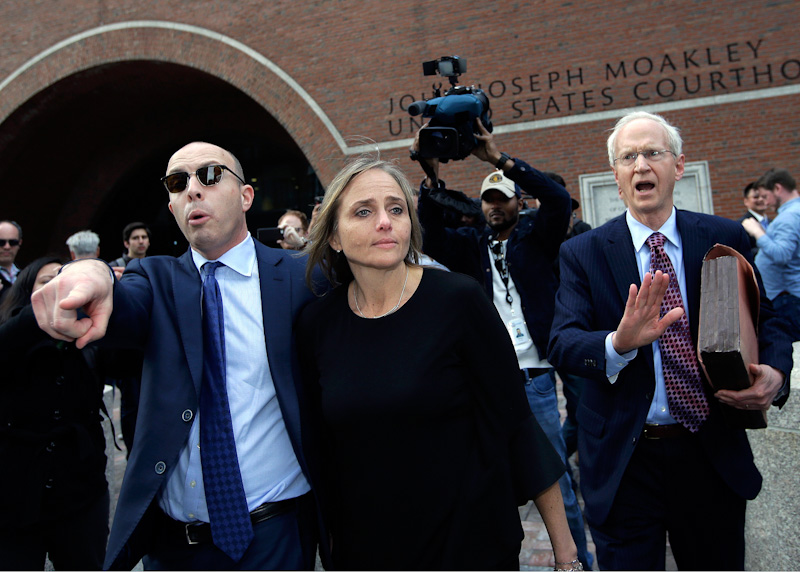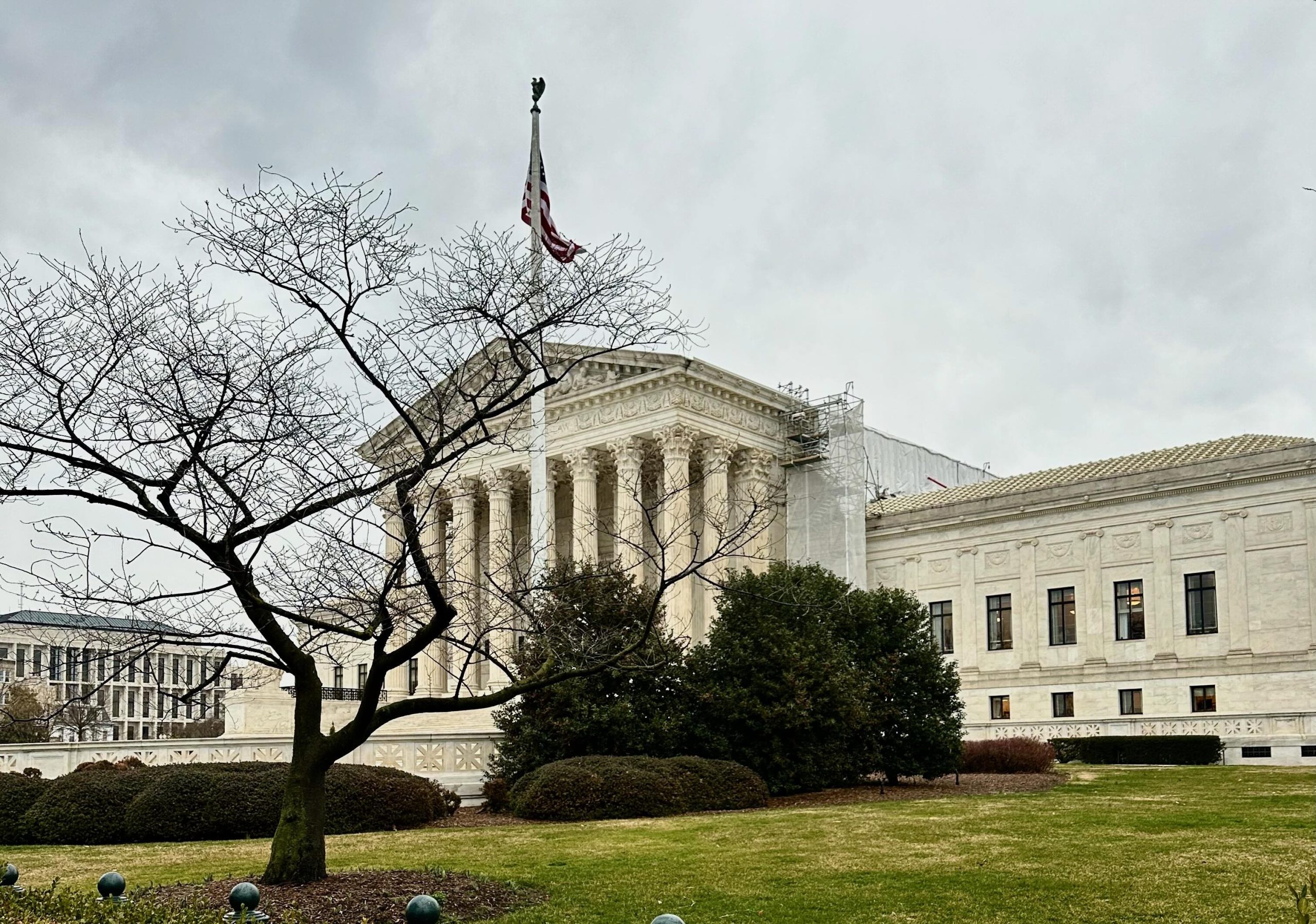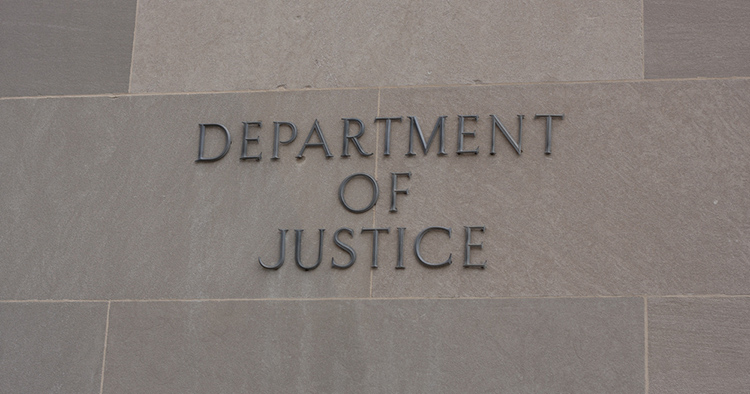Ethics charges claim that Judge gave a’reasonable’ impression she was letting an immigrant evade ICE.
Judiciary
Judge gave ‘reasonable impression’ she was letting immigrant evade ICE, ethics charges say
December 5, 2024, 12:52 pm CST
Judge Shelley M. Richmond Joseph of Massachusetts (center) departs federal court in April 2019 in Boston after facing obstruction-of-justice charges for allegedly helping a man in the country illegally evade immigration officials as he left her Newton, Massachusetts, courthouse after a hearing in 2018. (Photo by Steven Senne/The Associated Press)
A Massachusetts judge who allegedly gave a “reasonable impression” that she was allowing an immigrant to evade federal custody was “less than fully candid” when asked about the incident, according to an ethics complaint filed Monday.
The judge, Judge Shelley M. Richmond Joseph of Massachusetts, is accused of willful misconduct in the ethics complaint.
Boston.com, Reuters, the Daily Mail and Massachusetts Lawyers Weekly have coverage.
Joseph maintains, however, that she was not aware of a plan to let Jose Medina-Perez escape custody, and she was cooperative and truthful in the investigation by supervisors and disciplinary authorities. She “committed no misconduct and certainly no willful judicial misconduct,” her lawyers said in the written response to the charges.
“Judge Joseph looks forward to a hearing where all the circumstances finally become public,” said Thomas Hoopes, her lawyer, in a statement published by Reuters.
Joseph had once faced federal charges of conspiracy to obstruct justice over the April 2018 incident in the Newton, Massachusetts, courthouse.
Prosecutors had alleged that Joseph allowed Medina-Perez to go downstairs to the lockup, supposedly to retrieve property. A court officer allowed the immigrant to leave through a rear door. The charges were dropped in September 2022 after Joseph agreed to report herself to the Massachusetts Commission on Judicial Conduct.
The ethics complaint recounted the alleged sequence of events.
Medina-Perez was in court on a Pennsylvania warrant and two controlled-substance violations. Joseph asked the U.S. Immigration and Customs Enforcement officer to wait outside, in accordance with district court policy. The defense attorney and court officer “formulated a strategy” before a rescheduled hearing in which Medina Perez would be returned into the lockup by the court official and then let out through a door. During a sidebar recorded conference, the lawyer for the defense said that ICE would pick him up if he walked out the front door. I think it’s best to release Medina-Perez on a personal basis, and hope we can avoid ICE. Joseph allegedly replied, “ICE will get him?” and “What if he is detained?” Joseph instructed the court clerk to shut off the recording equipment. The unrecorded remarks lasted 52 seconds.
Joseph’s recorded statements “would give a reasonable observer the impression that she sought to assist defense counsel in identifying a means for the defendant to avoid ICE,” the ethics complaint says. “Judge Joseph’s willingness to conduct an unrecorded sidebar conversation with counsel, in violation of
, added to the basis for that impression.”
The defense lawyer allegedly asked Joseph in the unrecorded conference to allow him to accompany Medina-Perez to return to the lockup area after he was released from state custody. According to the ethics complaint, the defense lawyer allegedly told Medina-Perez that he could be released by a rear entrance. Joseph allegedly agreed to the request with the knowledge that ICE agents were waiting in a different area of the courthouse.
When the recorder was turned back on, the defense lawyer said he thought that the defendant had property downstairs, and he would like to speak with him with an interpreter. “That’s fine. “Of course,” Joseph replied. She said that she had disconnected the recording system in another courtroom after realizing it was amplifying a conversation in the sidebar. In a conversation she had with the chief judge of the district courts, Joseph denied any involvement in the defendant’s release. She also said that she did not know where the ICE agents waited outside the courtroom. She said that because prosecutors did not seek bail, she assumed that the defendant would be freed to ICE once his lawyer spoke to him. She is currently a Boston Municipal Court judge.






